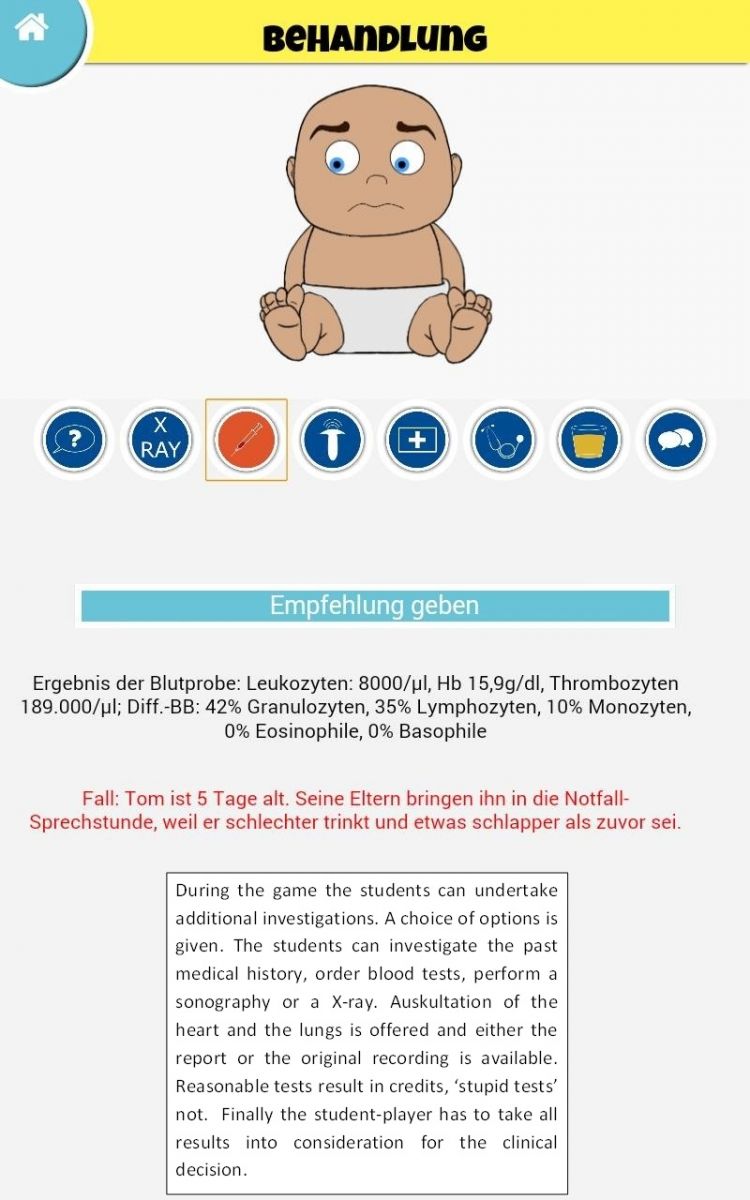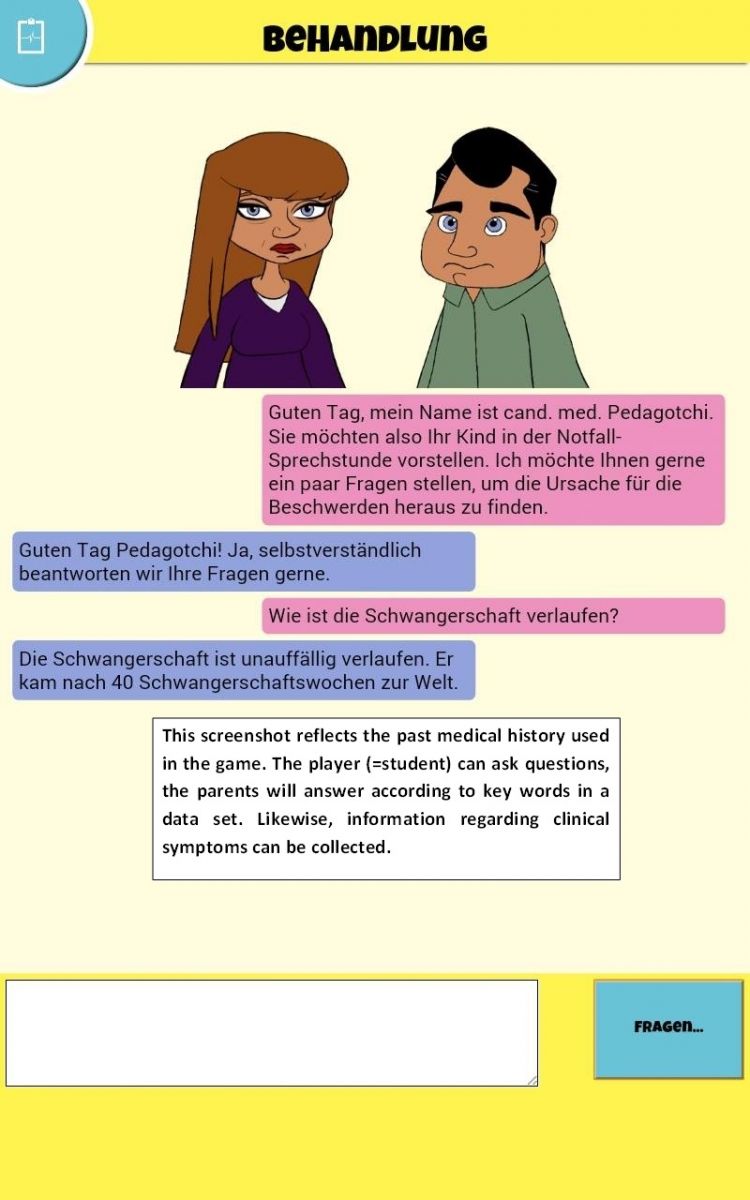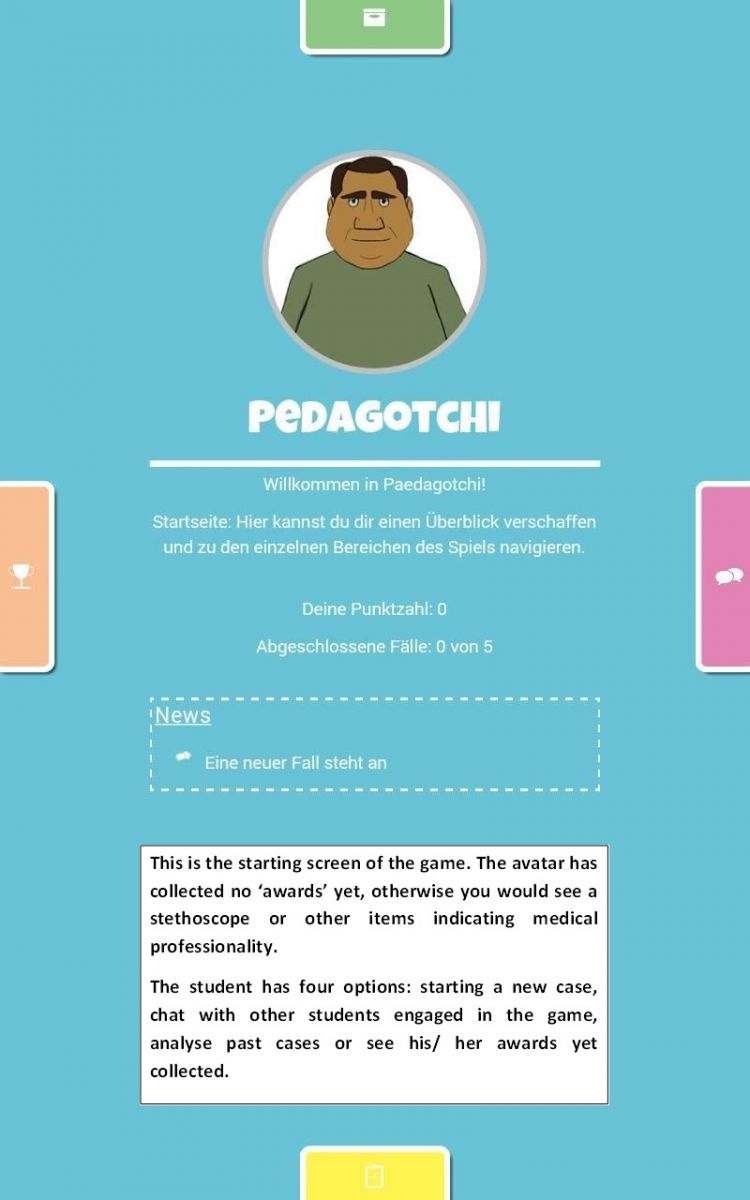
|
Authors | Institution |
|
Lorenz Grigull Ralf Schmidt |
Medical University Hannover - Pediatric Oncology and Hematology - Hannover - Germany University of Duisburg-Essen - Entertainment Computing Group - Duisburg - Germany |
 |
|
||||||
| "Pedagotchi" game-based learning (GBL) in pediatrics. |
Clinical decision making is a complex task for physicians. For medical students learning to decide is a challenge, too. Teaching clinical decision making using text-books is by far unrealistic, boring and not stimulating the learning process.
On the other hand, serious games offer the technical framework to make this educational goal more realistic and interesting.
Besides teaching the simple knowledge needed for any clinical decision, additional features can be integrated to foster the learning process in games, such as exchange among the players (e.g., 'What do you think, is it safe to administer furosemide to a newborn child?'). Besides, in a game it is easy to integrate awards for achievements and consequently stimulate the learner. Third, books usually offer only one dimension of a situation, e.g. in a patient’s story. In gaming, the structure of multiple layers theoretically offers multiple decisions in a given situation, which reflects the multidimensionality of a physicians’ daily life.
Likewise we hypothesized that a gamificated learning environment would help students to be fascinated for training clinical decision making and created a prototype to prove the concept.
First, we conducted interviews to gain insight into the students' expectation.
The medical students detailed that feedback / achievements, decision making, exchange of information among the students were important aspects for a game.
Accordingly, the story of a fictional child named 'Tom' was scripted. This boy seeks medical advice in the context of different medical emergencies. During the consultations, the students can chose different diagnostic alternatives. Hence, results of past medical history, auscultation, urine-analysis, X-ray or sonography can be collected. After that, the student-player has to give one out of four recommendations on how to proceed: 'watchful waiting?', 'referral to the next hospital?', 'referral to the next-door's cardiologist?' (...). The story, however, will continue differently according to the quality of the medical decisions.
In case of too many bad decisions, Tom might end up on the intensive care unit or the student is facing a malpractice suit.
In this pilot study, game-based clinical decision making was implemented in 5 different pediatric scenarios. Game-based features included feed-back, awards and inter-player exchange during the game. For the teacher, inclusion of X-ray, medical literature, YouTube videos offered interesting alternatives for usage of media.
The students enjoyed the gamification of medical content, but they also quickly identified and critized any bug of the medical stories.
For the teacher, game-based clinical decision gives insight into the students knowledge and limits. Easy integration of photographs, recorded cardiac or pulmonological exams or other features makes the case-design more realistic.
Availability of smartphones and tablets make gamification of the medical education possible
Pedagotchi is an example for gamificated decision making in pediatrics
Medical students enjoy "playful learning"
This project would never have been realized without the fruitful discussions during the Master of Medical Educations sessions (MME 10, Heidelberg, Germany).
The Medical University of Hannover (MHH) is funding the continuation of the Pedagotchi-project.
Garris R, Ahlers R, Driskell JE. Games, Motivation, and Learning: A Research and Practice Model. Simulation & Gaming. 2002
Kaczmarczyk J, Davidson R, Bryden D, Haselden S, Vivekananda-Schmidt P. Learning decision making through serious games. Clin Teach. 2015
Boeker M, Andel P, Vach W, Frankenschmidt A. Game-based e-learning is more effective than a conventional instructional method: a randomized controlled trial with third-year medical students. PLoS One. 2013



 Send Email
Send Email
